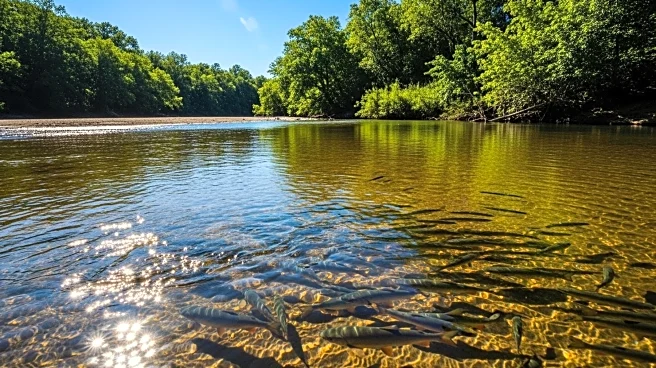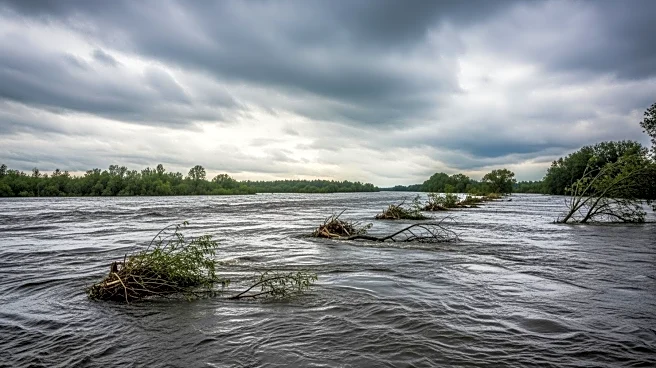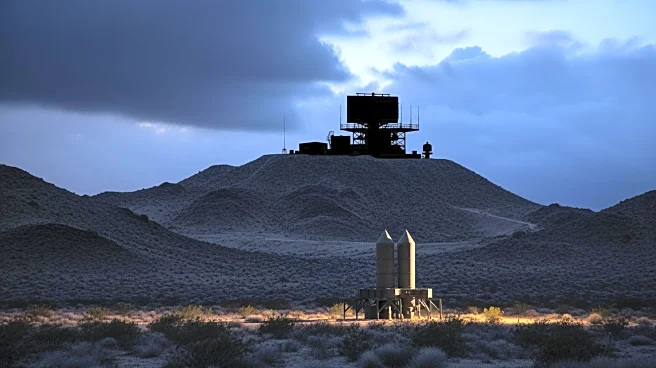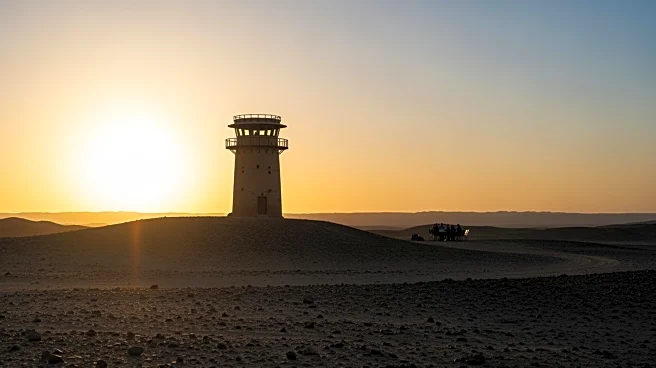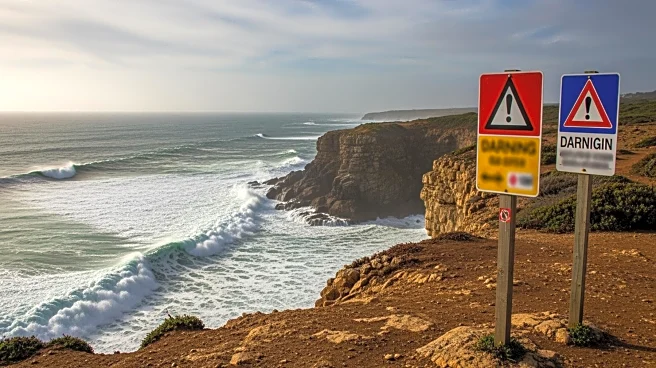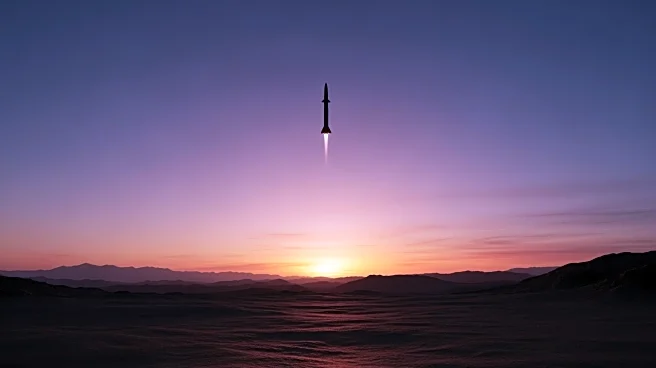What is the story about?
What's Happening?
Residents in Newtown, Powys, have taken action to move thousands of fish from Aberhafesp Brook after it dried up due to prolonged dry weather. Dave Lister, a local resident, noticed the brook had completely dried, leaving fish gasping for air. Despite contacting Natural Resources Wales (NRW) for assistance, Lister and his friends decided to move the fish themselves after receiving no immediate response. The group relocated various fish species, including salmon and trout, to nearby water bodies. NRW later stated that moving fish under such conditions could cause more harm than good, as many fish do not survive the stress of being handled and relocated.
Why It's Important?
This incident underscores the severe impact of drought conditions on local ecosystems. The drying of Aberhafesp Brook is part of a broader pattern of extreme weather affecting wildlife in Wales, with the region experiencing its driest six-month period since 1976. The situation highlights the challenges faced by environmental agencies in managing wildlife during extreme weather events. The actions taken by the community reflect a growing concern for environmental stewardship and the need for timely intervention by authorities to protect vulnerable ecosystems.
What's Next?
As drought conditions persist, further measures may be needed to protect aquatic life in affected areas. Environmental agencies like NRW may need to develop more proactive strategies to address the impact of extreme weather on wildlife. Community involvement in environmental conservation could increase, prompting discussions on legal and ethical considerations in wildlife management during emergencies.
Beyond the Headlines
The drying of Aberhafesp Brook raises questions about the long-term effects of climate change on local ecosystems. It highlights the need for sustainable water management practices and increased resilience to extreme weather events. The incident may also prompt discussions on the role of community action in environmental conservation and the balance between immediate intervention and long-term ecological health.
